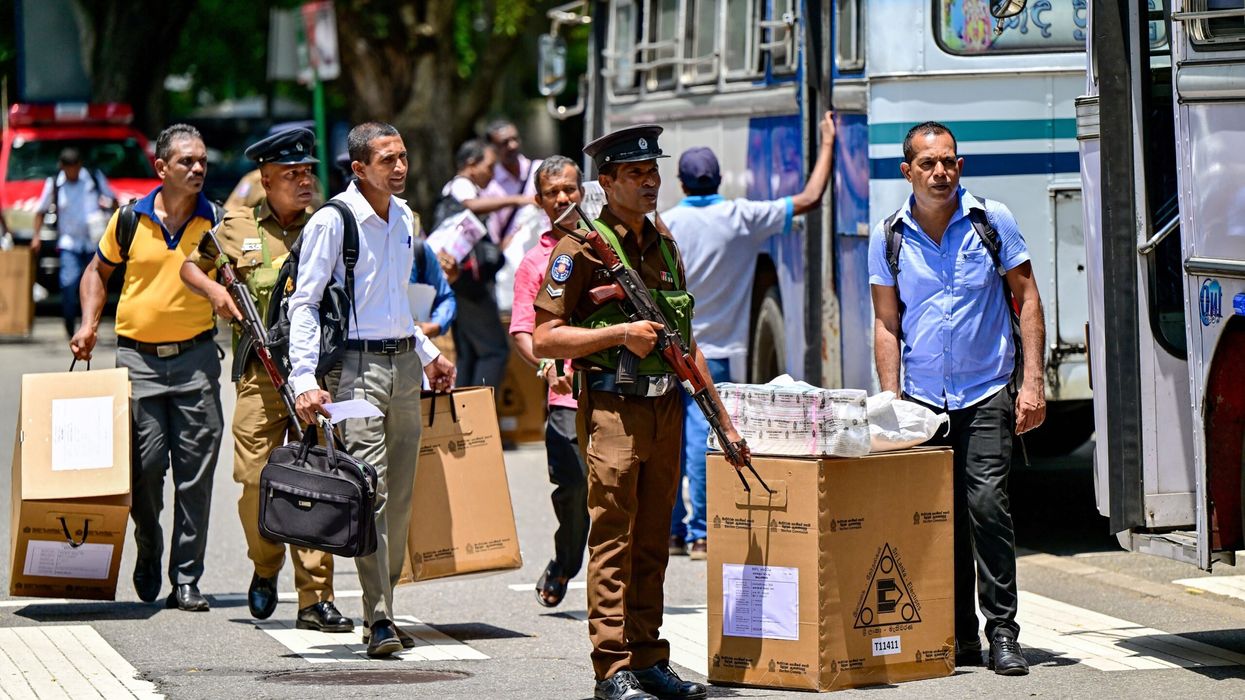SRI LANKA is set to vote for its next president on Saturday, marking the first election since the country’s severe economic crisis. The election is being viewed as a referendum on an International Monetary Fund (IMF) austerity plan implemented after the unprecedented financial collapse.
President Ranil Wickremesinghe has urged voters to give him a new mandate to continue with the austerity measures he says have stabilised the economy, ending shortages of food, fuel, and medicine. "We must continue with reforms to end bankruptcy," Wickremesinghe said at his final rally in Colombo on Wednesday night. "We must build a new economy."
He has restored order after civil unrest in 2022, which saw thousands storming the compound of his predecessor, who fled the country. "Decide if you want to go back to the period of terror, or progress," Wickremesinghe added.
His tax hikes and other measures, imposed under a £2.2-billion IMF bailout, have been difficult for many citizens. Experts warn that the economy remains vulnerable, with payments on the island’s £34.6-billion foreign debt still on hold since the government defaulted in 2022.
"The election will largely be a referendum on how Wickremesinghe's government has handled the economic crisis and the ensuing modest recovery," said the International Crisis Group this week. It noted that many people are enduring "enormous hardship at the same time as Colombo cuts costs and takes other austerity measures perceived by the public as unfair."
As election campaigning ended on Wednesday night after a 56-day period, the country entered a two-day "cooling off" period before the vote. About 17.1 million people are eligible to vote, with over 200,000 officials deployed to conduct the election, which will be monitored by 63,000 police personnel. Results are expected by Sunday.
Police spokesman Nihal Talduwa reported that the campaign had been relatively peaceful, with 464 election-related complaints but no serious crimes.
Wickremesinghe faces two main challengers, including Anura Kumara Dissanayaka, leader of a Marxist party that led two failed uprisings in the 1970s and 1980s. The crisis has boosted support for the 55-year-old Dissanayaka, who has campaigned to change the island’s "corrupt" political system. "The 21st (voting day) will be the beginning of a long journey to completely change the system of governance in Sri Lanka," he said at his rally.
Analysts believe Dissanayaka could benefit from public anger over corruption and economic mismanagement that led to the crisis. "There is a significant number of voters trying to send a strong message... that they are very disappointed with the way this country has been governed," said Murtaza Jafferjee of the think tank Advocata.
Another candidate, Sajith Premadasa, a former ally of Wickremesinghe, has promised transparency in state procurements and a fight against corruption. Premadasa, who campaigned on a pledge to secure concessions from the IMF, has criticised the current government’s policies.
Official data show Sri Lanka’s poverty rate doubled to 25 per cent between 2021 and 2022, with 2.5 million people living on less than £2.75 a day. The IMF stated that reforms were showing results, with inflation falling below five per cent from a peak of over £52.63, and growth slowly returning.
"A lot of progress has been made, but the country is not out of the woods yet," the IMF’s Julie Kozack said in Washington last week. "It is important to safeguard those hard-won gains."
(With inputs from AFP)




